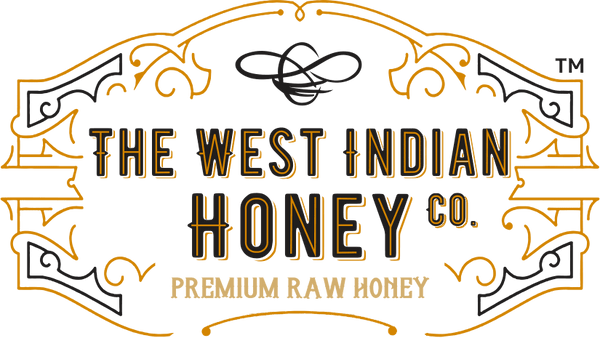The all-natural sweetener carries with it the risk of a serious but rare poisoning called botulism. Read on to find out how this poisoning occurs and when you can safely feed raw honey to babies.
If you’re ever read the back label of a raw honey jar, you would have noticed the stark warning: “Do not feed raw honey to infants under one year of age.” Raw Honey seems harmless, healthy even. So why would doctors and medical experts advise parents to keep raw honey away from their infants and babies? One word: toxins.
Whether you’re simply curious why raw honey has such a specific age limit, or you’re trying to learn when your a child can start consuming this natural sweetener, it’s important to understand raw honey’s impact on infants’ health. Read on to find out why babies can’t eat raw honey, and when you can feel confident your little one can try their first taste without the risk for illness.
Why Is Raw Honey not recommended for infants?
For anyone above the age of one, raw honey is one of the safest ingredients to have in your kitchen. It’s practically impossible for it to go bad, some types are thought to have antibacterial properties, and it’s a nice option for naturally sweetening dishes of all types.
But for babies, raw honey brings the risk of infant botulism, a serious foodborne illness that can require hospitalization. With early diagnosis and proper medical care, infant botulism can be treated, and the infant is likely to make a full recovery. But prevention is important, as is identifying early signs and symptoms so you can begin treatment right away.
What Causes Infant Botulism?
Infant botulism is caused by a toxin, or poison, created by the bacterium Clostridium botulinum. This bacterium lives in soil and dust, but it also happens to contaminate honey. In the baby’s large intestine, C. botulinum will produce a toxin that can lead to concerning and dangerous symptoms.

Symptoms of infant botulism include:
– Constipation or reduced bowel movements
– Weak facial muscles or a “flat” affect
– Muscles weakness, most notably in the arms, neck, and legs
– Problems breathing
– A weak cry
– Difficulty swallowing with increased drool
– Eating less
– Moving less

Babies under one year should never eat raw honey. Their digestive systems are simply too young to fight off the toxins. But for older kids and adults, people with mature digestive systems, the bacteria harmlessly passes through the body without enough time to cause any harm.
Once a baby passes their first birthday, you can safely feed them, honey. The age at which a baby’s digestive system can handle raw honey maybe earlier (around six months), but because doctors can’t pinpoint when the digestive system reaches the right level of maturity, the guideline is one year.
Are All Types of Raw Honey is not recommended to Infants?
Whether it’s Manuka, Raw, organic, or local honey, they’re all equally culpable when it comes to infant botulism. Even processed products made with honey, such as raw honey cereal or graham crackers, can be at fault. If you’re wanting a natural sweetener for your home that’s also baby-friendly, some safe options include maple syrup, agave nectar, or puréed fruits.
What if I Accidentally Fed My Infant Raw Honey?
Though any taste of raw honey carries with it the risk for illness, the cases of infant botulism caused by raw honey is few. Yes, while you should still avoid giving your baby honey until they’re at least one year old, rest assured that infant botulism caused by raw honey is rare.
If your kid ate a bit of raw honey off your finger or nibbled a honey-drizzled muffin, keep a close eye on them. If they begin to show symptoms, immediately contact their doctor or health care provider. Treatment, if administered early, is effective at eliminating the poison and helping your child avoid serious complications like breathing problems.
Conclusion:
Infant botulism is rare, and infant botulism caused by raw honey is even rarer. But it is a serious risk, and if your child is poisoned by the bacteria that causes botulism, they could face serious symptoms and dangerous health effects. Keep the raw honey out of your kids’ mouths until they are at least a year old when a more mature digestive system is fully capable of handling any potential toxins.
At The West Indian Honey Co., we're passionate about providing you with the finest and safest honey products. We understand the importance of a baby's health and well-being, and we fully support the recommendation to wait until your child is at least one year old before introducing honey into their diet.
